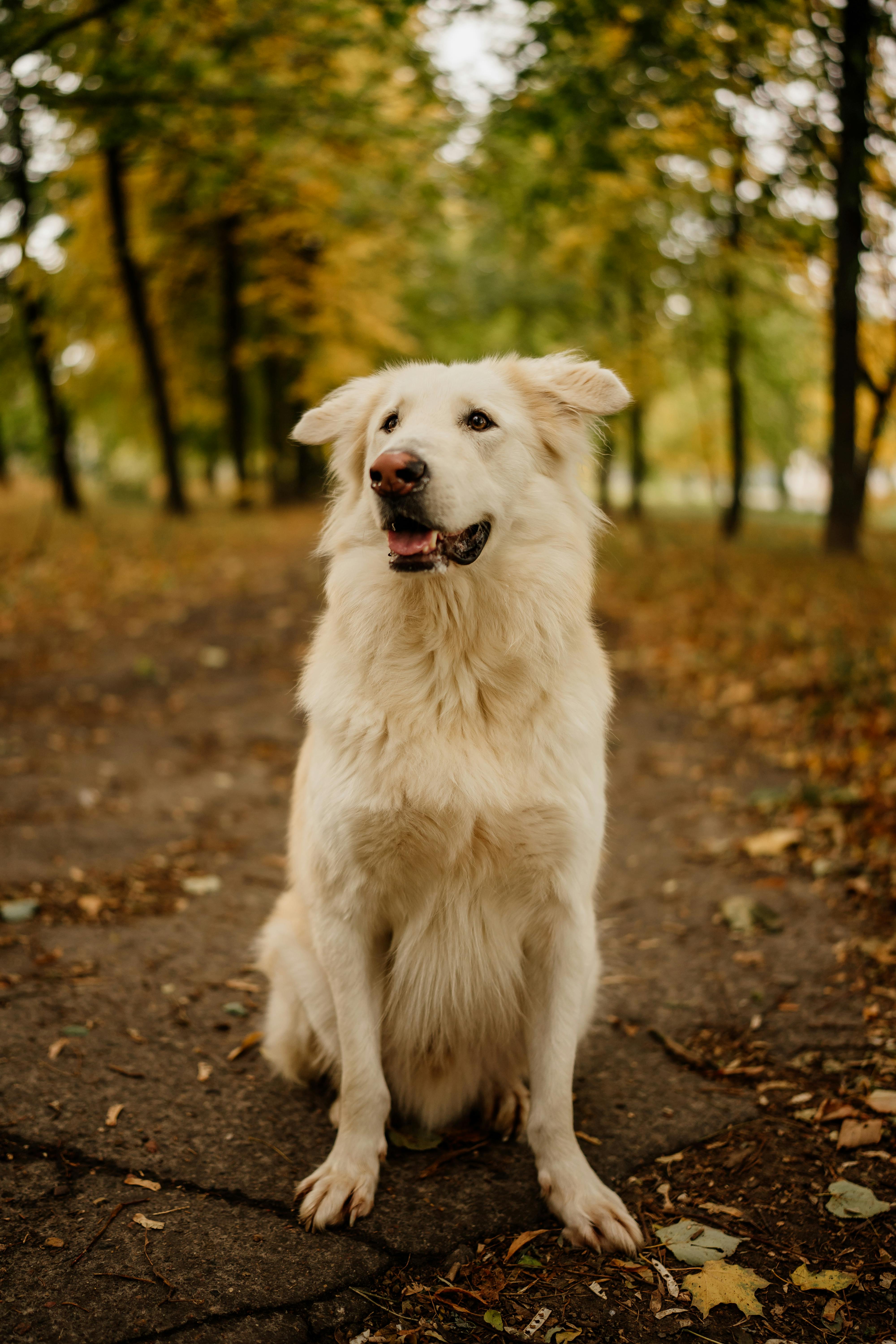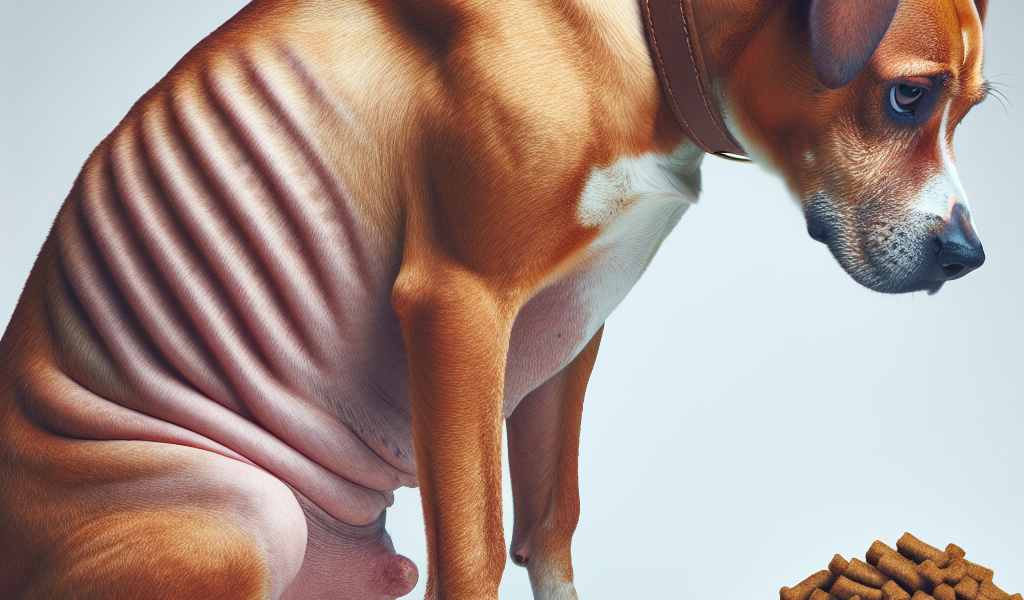Uncovering the Causes of Weight Loss in Dogs
Are you noticing your furry friend looking a bit thinner lately? “Uncovering the Causes of weight loss in dogs” might shed some light on this puzzling situation. This article cuts right to the chase and strategically outlines the possible reasons behind your canine companion’s sudden or unexpected weight loss. Not just that, it also offers practical advice on how this problem might be prevented or addressed, taking into careful consideration the overall health and wellbeing of your beloved pet.

Recognizing Symptoms of Weight Loss in Dogs
As a dog owner, you play a crucial role in monitoring your four-legged friend’s health. Early detection of any symptoms is often key to better prognosis and treatment outcomes. One such health concern is weight loss in dogs. Typically, gradual weight loss may not be immediately noticeable, but don’t worry, there are signs you can watch for.
Obvious loss of body mass
One of the first indications you may notice is the losing body mass. Your dog might suddenly look smaller or thinner. Their collar might be looser, or their pet clothes might not fit as snugly as before.
Changes in appetite
Whether your canine companion decides to skip meals or suddenly can’t seem to get enough to eat, changes in appetite can often signal a health issue. Beware of any drastic or sudden change, whether it’s eating more or eating less.
Lethargy or loss of energy
A usual energetic and active dog may suddenly become lazy or exhibit episodes of fatigue. This could be a sign that they’re not getting enough nutrients due to a loss of appetite or an underlying medical condition.
Changes in bowel movements
Whether your dog is having diarrhea, frequent bowel movements, or constipation, changes in their stools may indicate health troubles. Beware of any digestive issues as these can lead to weight loss in dogs.
Visible rib or hip bones
Lastly, if your dog’s ribs or hip bones become visible or more pronounced, this is a clear sign of significant weight loss. At this point, immediate veterinary attention might be necessary.
Dietary Causes of Weight Loss in Dogs
Weight loss in your dog can have several causes, and dietary factors contribute significantly. Being aware of what these could be will help you prevent weight loss in your beloved pet effectively.
Inadequate intake of nutrients
The primary cause could be the intake of a diet that lacks essential nutrients, vitamins, and minerals. A balanced diet is key to a healthy dog, and a deficiency in nutrients could lead to weight loss.
Feeding low-quality dog food
Diet quality is paramount for your dog’s health. Feeding your dog low-quality dog food can be detrimental to their health, often leading to weight loss, as these foods might lack essential nutrients needed by your dog.
Inconsistent feeding schedule
Dogs thrive on routines, including their feeding habits. An irregular feeding schedule can lead to an erratic eating pattern, detrimental eating habits, and consequently, weight loss.
Diet changes
Just like humans, dogs might react differently to abrupt diet changes. These might upset their tummy, lead to a decreased appetite, or both, thereby causing weight loss.
Medical Causes of Weight Loss in Dogs
Apart from dietary factors, certain medical conditions might be causing your dog to lose weight. These conditions can range from mild to severe, each requiring different treatment approaches.
Parasites or worm infestations
Parasites or worms in your dog’s system can interfere with nutrient absorption, leading to weight loss. Regular worming is necessary to avoid such infestations.
Diseases or conditions such as diabetes, pancreatitis, cancer
Various diseases such as diabetes, pancreatitis, or even cancer can cause weight loss in animals. If your dog is losing weight and has other symptoms, it might be an indication of one of these conditions.
Dental problems leading to difficulty eating
Your dog might be finding it difficult to eat due to dental issues, resulting in weight loss. Regular dental check-ups can help to diagnose early and treat such problems.
Age-related conditions
Just like humans, dogs also experience age-related health issues. As your dog ages, they might experience weight loss due to reduced metabolic activity or other age-related conditions.
Behavioral Causes of Weight Loss in Dogs
In addition to physical causes, behavioral aspects might be causing your dog’s weight loss. It’s essential to pay attention to these as they can be indicators of your dog’s overall wellbeing.
Anxiety or stress leading to reduced appetite
Your dog could be experiencing stress or anxiety that is causing a reduced appetite and, in turn, weight loss. Changes in their environment, new family members, or other major changes could all lead to stress.
Excessive exercise or activity without increased food intake
If your dog is overly active but doesn’t get the necessary increase in food intake to match their energy expenditure, they could lose weight.
Competition for food in multi-pet households
In multi-pet households, competition can often lead to some pets not getting enough food. This could be a cause of weight loss, particularly for shyer dogs.

Effects of Weight Loss in Dogs
Unexplained weight loss in dogs can lead to several health issues—both minor and severe. It’s crucial to identify and treat weight loss as soon as possible to avoid these complications.
Weakened immune system
Weight loss can affect the immune system, making your dog vulnerable to diseases and infections.
Worsening of existing health conditions
If your dog already has a health condition, weight loss can exacerbate it, making it harder to manage and treat effectively.
Onset of new health issues
Initial weight loss can lead to the onset of other health problems, such as heart, kidney, or liver diseases.
Reduced quality and length of life
Ultimately, weight loss can impact your dog’s overall quality of life. It can lead to other health issues, thus reducing your dog’s lifespan.
Diagnosing the Cause of Weight Loss in Dogs
Weight loss can be indicative of various underlying issues. It’s necessary to get your vet’s help to diagnose the exact cause accurately.
Veterinary examinations and tests
Your vet might perform physical examinations, blood tests, ultrasound, X-ray, or other diagnostic tests to identify the precise cause of weight loss.
Review of dietary habits and lifestyle
A review of your dog’s diet, lifestyle, and general habits may also be beneficial in providing clues to what’s causing the weight loss.
Management of any existing conditions
Finally, if any medical conditions have already been noted, their management could elucidate the reasons behind the weight loss.

Treating the Underlying Causes of Weight Loss
Once a diagnosis has been reached, it’s time to treat the underlying causes to restore your dog’s health and weight.
Medical treatments for diseases or conditions
Your vet will determine the appropriate medication, therapies, or treatments needed to address any medical issues identified.
Dietary changes or adjustments
If it turns out the weight loss is due to a dietary issue, adjustments to the type, quantity, or eating schedule of your dog’s food may be recommended.
Behavioral therapies or remedies
If the weight loss is linked to behavioral issues, changes to your dog’s environment, routines or additional behavioral therapies might be needed.
Surgical intervention if required
In some cases, surgical intervention might be necessary, particularly if dental issues or tumors causing weight loss require removal.
Prevention of Weight Loss in Dogs
Preventing weight loss in dogs is crucial for their overall health and longevity. Various steps that can be taken to achieve this include:
Regular veterinary check-ups
Your vet understands your dog’s health best. Regular check-ups help detect any potential health issues before they become serious.
Balanced and adequate diet
Providing a diet that is balanced and meets all your dog’s nutritional requirements is key to preventing weight loss and promoting overall wellbeing.
Regular exercise with appropriate rest
It’s important to maintain a healthy balance between exercise and rest for optimal health. Excessive or inadequate exercise could harm your dog’s health.
Stress and anxiety management
Keeping stress and anxiety at bay is crucial for your dog’s wellbeing. A calm and comfortable environment promotes better physical and mental health in dogs.
Best Practices for Weight Management in Dogs
Managing your dog’s weight doesn’t have to be complicated. The following principles are useful in ensuring your dog maintains a healthy weight and lifestyle.
Monitoring your dog’s weight regularly
Frequent weighing of your dog helps detect any sudden weight loss and tackle it immediately.
Providing a balanced diet
A balanced diet packed with all essential nutrients is vital in maintaining your dog’s ideal weight.
Ensuring appropriate exercise regime
Regular, appropriate exercise helps keep your dog active and prevents obesity while maintaining the right weight balance.
Regular Veterinary check-ups
Your vet can provide customized advice and guidance depending on your dog’s breed, age, and specific health needs. Regular vet visits help catch any potential issues at the earliest.
Consulting With a Veterinarian
Consulting with your vet is extremely important when trying to manage your dog’s weight. Remember that every dog is unique and what works for one might not work for another.
When to seek veterinary advice
You should seek your vet’s advice if your dog is losing weight rapidly, eating less, or showing any other signs of illness.
How to discuss your concerns with the vet
Go prepared with a list of your concerns. Be open about any changes you’ve noticed, even if they seem minor. The more information your vet has, the more accurate their diagnosis and treatment plan will be.
Following through with vet recommended treatments and advice
Once your vet has provided advice or treatment, make sure to follow through. Regular follow-up visits might be necessary to monitor progress. Remember, weight loss in dogs can be managed effectively with timely diagnosis, treatment, and care. Being observant and proactive can help your furry friend live a healthier, happier life!

